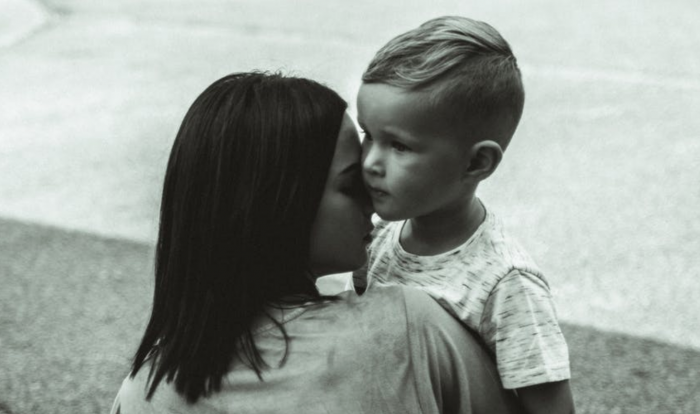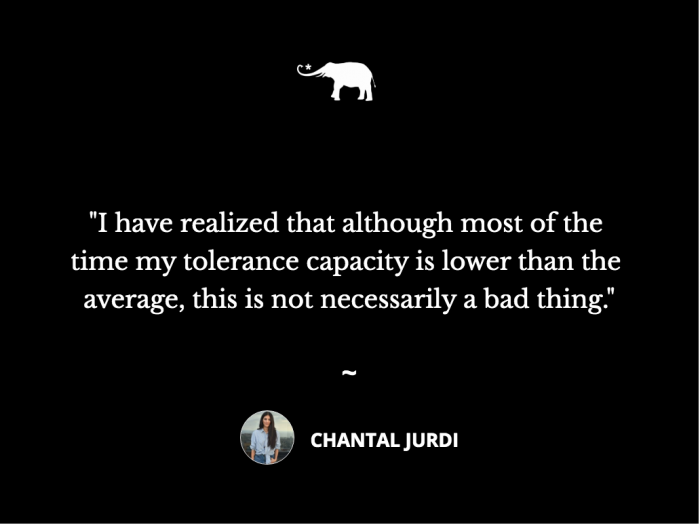“You are way too sensitive!”
I can’t tell you how many times I heard this while growing up from anyone around me who was willing to give me their unsolicited pieces of advice.
It’s true that I was a sensitive kid. A highly sensitive one, in fact, who was not properly armed to deal with my constant overflow of emotions. They were continuously hitting me, sometimes with a hurricane-like force, and never giving me a moment of rest.
I also wasn’t capable of understanding why I was deeply affected by events that other people seemed not to care about at all.
With time, I started to perceive my sensitivity as a weakness I should get rid of at all costs.
But then I grew up, realized a bunch of stuff, worked on myself, moved forward, moved backward, stood still for a while, then managed to get back on the horse—somehow.
I eventually learned to embrace my sensitivity. I was not fully friends with it just yet, but I was slowly getting there.
And then my son was born—a hypersensitive and bright, young child. It is such an explosive combination that can knock even the strongest one of us down.
It was only then that I realized there are sensitive people and oversensitive ones. And while I always thought of myself as belonging to the first group, it turned out that I actually belonged to the latter.
There was absolutely no point in trying to avoid it or ignore it anymore. We were both oversensitive and there was that. For his sake and mine, I had to accelerate the process of embracing my oversensitivity.
And that is how our rocky journey with self-acceptance has started.
Here are seven of the most important realizations I have made about my son—and myself:
1. I always have to make an extra effort to make sure that he isn’t overly stimulated or fatigued because that means an instant meltdown. And that is absolutely true for me as well. When both of us get stimulated too much, we need a down period (usually on our own and in our comfort zone) to recharge our batteries and be able to face the world again.
2. I have to dedicate special times a day to manage my son’s emotions. Helping him understand what he’s feeling and why he’s feeling it has also helped a lot with my inner introspection.
3. Giving him the space that he needs and allowing him to advance at his own pace (which is super fast at times and slow at others, and it is almost imperceptible) has made me realize how crucial it is to respect and honor each pace—for his well-being as well as mine.
4. Giving each emotion the time it requires, no matter how long, has actually allowed him to let go. Not making a “big deal” out of it actually makes him feel stuck. Needless to say, it is the exact same thing for me!
5. It hasn’t been a straightforward journey, and there were many (and I mean many) trials and errors along the way, but what’s sure is that my son is different from other kids his age, and I need to respect that.
6. It turned out eventually that when well-nurtured and taken care of, oversensitive people can flourish since they are great listeners and good empaths. Yes, we have strong emotions and can be all over the place sometimes, but just give us the proper space to rest and energize and we will come back stronger and better.
7. I always knew but never quite realized how important it is to take my time, acknowledge that I am “different,” and that I need a different manual than others, especially in mainstream societies that are all about performance, competitions, and fast-paced lives, which are not tailored for someone like me or my son.
Seeing my oversensitivity reflected in my son and knowing that on top of all the sacrifices, revelations, hardships, roller coasters, and joys motherhood has to offer, I also have to allocate specific amounts of time and energy to deal with his oversensitivity—and it hasn’t been easy.
I remember one time, I was ordering food at a restaurant. I was standing in a queue waiting for my turn, feeling overwhelmed, tired, and just completely helpless. Then when my turn to order finally came, I burst into tears in front of the cashier and went to hide in the bathroom.
I immediately called a friend of mine who’s a psychotherapist. She made me realize how important it is to finally acknowledge that my son is hypersensitive and to deal with him as such.
Ignoring this fact, or not fully grasping that oversensitive people have a different approach they respond to, was not doing any one of us any favor.
I also had to take a long and hard look at myself. It was time for me to fully honor that part of myself as well. And so I started discovering how to treat myself more kindly through honoring and listening to the needs of my son.
He is now a four-year-old happy boy who has grown a lot emotionally. His tantrums have almost disappeared, as we have both learned our triggers and how to deal with them.
Recognizing and seeing my reflection in him has made me realize how badly I have been treating myself by ignoring this part of me.
I feel and perceive things differently than most, and therefore, I shouldn’t expect myself to function as others do. I have realized that although most of the time my tolerance capacity is lower than the average, this is not necessarily a bad thing.
I have developed strategies and methods to cope with my high sensitivity, and this, in turn, has helped me and my son tremendously.
But most importantly, we have both learned that our oversensitivity is not our weakness, it is our superpower.
~













Read 2 comments and reply